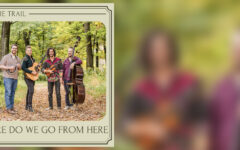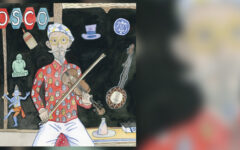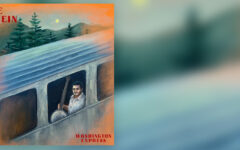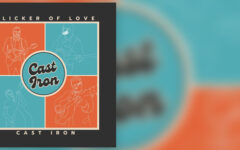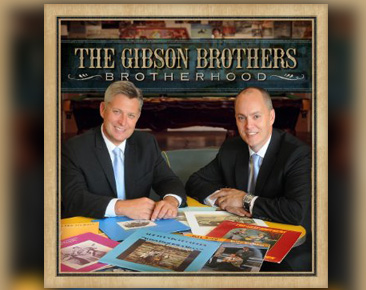
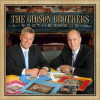 In debates surrounding regional chauvinism in the roots of bluegrass music, New York’s Gibson Brothers are often posited as modern exemplars of a sound that isn’t dominated by cultural and musical conventions of the American south.
In debates surrounding regional chauvinism in the roots of bluegrass music, New York’s Gibson Brothers are often posited as modern exemplars of a sound that isn’t dominated by cultural and musical conventions of the American south.
It’s true that their music is based on a brother duets tradition with deep southern roots, one that predates bluegrass music, that brought a close harmony singing style common in simple country churches into the homes of millions on records and on the radio.
But the Gibsons, Eric and Leigh, were raised far from the fields of Alabama that brought us the Louvin Brothers, the hills of western Kentucky where the Monroe Brothers hailed, or the Appalachian mountains where the Bolick Brothers grew up. Their tradition started much further north, where New York state winters are as rough as they are in neighboring Canada.
They learned to sing and play two generations later, when recordings were widely distributed in the northern US, just as regional “hillbilly music” had been throughout portions of the rural south in the ’50s and ’60s. So they could hear both contemporary bluegrass and the older brother duets almost as easily as pop and country as young boys.
After tremendous success as a bluegrass band, seeing themselves regularly nominated and often winning awards from the International Bluegrass Music Association, the Gibsons have turned their attention back to the great brother duets, and eschewing their trademark original material, have released Brotherhood, a bluegrass and acoustic country tribute to some of the greats of that genre.
An interesting choice is to start and finish the album with non-bluegrass covers of a pair of Everly Brothers numbers. A quick listen to their earlier work would make plain the influence that Don and Phil Everly had on these Gibson Brothers. It’s especially apparent in Eric’s tenor voice, but also in the precision of their phrasing when singing together.
To open, they offer a remarkably-accurate, though slightly slower, version of the Everly’s single on Bye Bye Love, written by Boudeleaux and Felice Bryant of Rocky Top fame. And they conclude with Crying In The Rain, with lush pedal steel substituting for the tremolo guitar of the original.
In between are versions of classic songs from the most celebrated brother acts in bluegrass and mountain music. A 3/4 time reworking of How Mountain Girls Can Love from The Stanley Brothers; I’m Troubled I’m Troubled and The Sweetest Gift from The Blue Sky Boys (and the Lilly Brothers; from The Osborne Brothers there’s Each Season Changes You; Sweet Little Miss Blue Eyes from Jim & Jesse; and I Have Found The Way which Bill and Charlie Monroe recorded in 1937.
Another contemporary bluegrass brother act, Rob and Ronnie McCoury, join the Gibsons for a quartet reading of What A Wonderful Savior Is He, which had been cut in the late ’50s by a previous grouping of siblings, the Brewster and Webster brothers, from Knoxville, TN. The McCourys also add banjo and mandolin to this track.
The Long Gone included here is not the popular Don Reno number, but a rollicking rockabilly piece from The York Brothers, a Kentucky duo who recorded it in 1958.
Ample support is provided throughout by The Gibson Brothers road band, consisting of Jesse Brock on mandolin whose playing is spot on top to bottom, Clayton Campbell on fiddle, and Mike Barber on bass.
Brotherhood is available today from Rounder Records.

